Sex, Cocaine, and Cigars—A Brief Overview and Criticism of Freud's Groundbreaking Theories
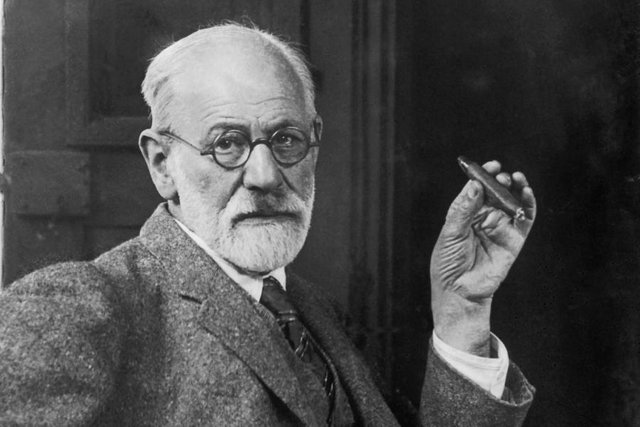
Sex
Cocaine
Cigars
Before reading the title of this article or seeing the cover photo, most people would have associated these words with Sigmund Freud. Some would even claim that the triggered word association actually welled up from the unconscious mind!
But everyone should have some recollection of Sigmund Freud, even if it was roiling beneath the bridge of their conscious mind. Even if they have only heard of him in passing, they know he had something to do with psychology.
Hearing his name usually conjures his image: the deeply intellectual, fancily dressed, bearded man puffing on a fat cigar.
Most people associate him with sex; the fact that Freud was in love with his mother is considered a social trope. Others know him as being a connoisseur of cocaine, especially for the purposes of lessening the pain of the mouth cancer he contracted from smoking all his life. He enjoyed cocaine so much that he actually wrote a book on it called the cocaine papers.
People with deeper insight into Freud, know that he is the father of psychotherapy and creator of the psychological theory of the unconscious and "tripartite" theory of personality. But one thing is for certain, the weight of his contributions to the field of psychology and the world cannot be underestimated, for good or bad.
My goal here is to provide a brief overview of Freud's contributions, namely his view of the unconscious and his personality theory. Then I will offer a few of my own thoughts.
But bear in mind, none of what I have to say on this matter is final or exhaustive. In his lifetime, Freud was a prolific and energetic writer, and it would take volumes to completely cover and do justice to all of his work. Therefore, there is a huge chunk of his material I will not discuss, including sexual stages of development, transference, defense mechanisms, therapeutic techniques, and various complexes.
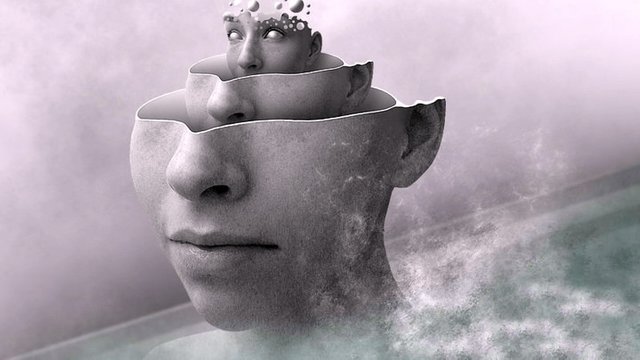
Theory of the Unconscious Mind
Freud's major breakthrough was his idea that human beings possess unconscious drives, that they have a life throbbing beneath the surface of conscious awareness. This unconscious world is said to contain a medley of content. Everything from childhood fears, trauma, repressed feelings, and other emotional material are stowed away in the anteroom of the unconscious.
These unconscious and hidden impulses are said to constantly burst into conscious awareness at inopportune times or seemingly at random. And when this occurs, the individual is not fully cognizant of that what happened; they don't realize what they experienced represents an unconscious aspect of themselves.
One way this occurs is through the so-called "Freudian slip," where sexual references or figures of speech are uttered by accident, and usually in humorous or embarrassing ways, which are said to emanate from their unconscious mind.
Freud said that a person's dream life is a veritable hub of unconscious symbols and motifs. He wrote extensively about the connection between dreams and the mystique of the unconscious in his book The Interpretation of Dreams.
He made the claim that dreams are the "royal road to the unconscious." By this he meant that the "latent" content of dreams contained hidden desires or wishes a person unconsciously harbored. For instance, the snake and sword were supposed to stand for the penis or underscore some sexual agenda or impulse.
By analogy, Freud compared the unconscious mind to an iceberg. The hulking mass of the iceberg that is underwater represents the unconscious (sometimes referred to as subconscious). The tip of the iceberg, which protrudes above the surface of the water, represents conscious awareness, which could also be said to represent the "ego" of the personality.
Freud said this about the Unconscious:
“Properly speaking, the unconscious is the real psychic; its inner nature is just as unknown to us as the reality of the external world, and it is just as imperfectly reported to us through the data of consciousness as is the external world through the indications of our sensory organs.” ― Sigmund Freud,The Interpretation of Dreams
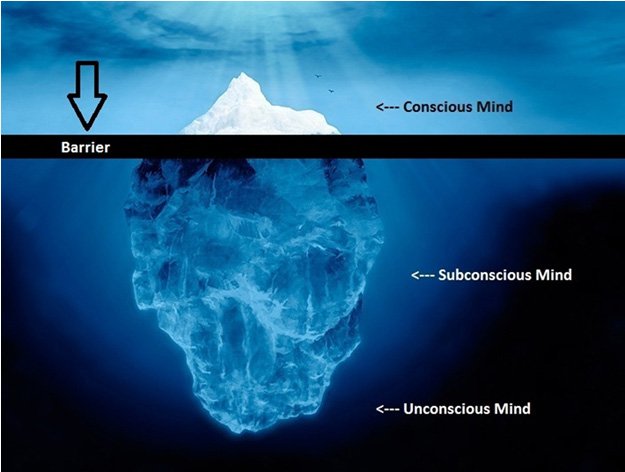
The Tripartite Theory of Personality
Another fascinating aspect of Freud's theory, was that the human personality was divided into three separate parts: the ego, id and superego---also called the Tripartite theory of mind. These three components of the human psyche help determine how we behave, think, and feel in life. But they are also always competing with each other to see who wins out.
- The id is considered the primal area of mental functioning. It is associated with the "pleasure principle" and subconscious drives and desires. It is often linked to the lizard brain, and the one component of personality that is present at birth. The id contains impulses that may go against cultural mores or acceptable standards of behavior, including sexual or aggressive urges. This aspect of functioning is highly volatile and emotional, and it is almost always at odds with the superego.
- The superego by contrast is the moral compass of the individual. It is the aspect of mind that keeps the id at bay. It allows individuals to acknowledge cultural rules, personal values, and standards of behavior. Without a properly functioning superego, the individuals id would run amok and a person would remain a victim of their most primitive urges.
- The ego is the intermediary or the executive part of the psyche that ultimately makes the decision to act. It is oftentimes considered the "reality principle." It is conscious awareness, perception, and immediate awareness. The ego takes in all of the information from the id and superego and consolidates it in order to make a volitional decision. The ego is also responsible for providing people with a propensity for delayed gratification.
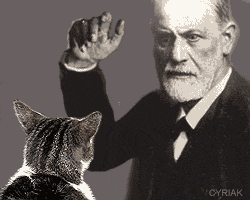
My Freewheeling Thoughts, Criticisms, and Analysis of Freud's Ideas
Fully Fleshed out Theory and Discovery of Abuse
Freud's theory of personality was the most fully fleshed out vision of human functioning to be articulated. It provided the world with a nuanced understanding of human nature, but even though Freud seemed to viewed personality as intricate and multi-layered, he ultimately believed human action was largely deterministic. And he thought specially trained "analysts" were necessary to help people come to terms with their personality and gain insight into their behavior. In this sense, psychoanalysis was a very authoritarian and one-sided form of therapy. There was little room for free will in the conventional sense of the term.
Nonetheless, Freud's ideas paved the way for modern counseling, and provided professional disciplines with the initial tools they needed to help those who suffer from the difficulties and traumas of life. Freud can also be said to be the first one to systematically uncover childhood abuses in his clients, which allowed the field as a whole to acknowledge signs of abuse, expose abusers, and help the abused deal with trauma.
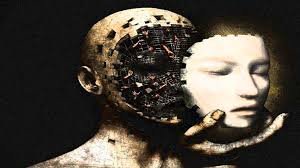
Freud's View of Humanity, the Growth of Medical Psychiatry, and his Far-Reaching Influence
However, for all the good Freud did for therapy and psychology, his perspective on humanity was bleak. Because he saw humans as deterministic and believed his ideas were based in objective science, he also caused the behemoth of psychiatry grow unrestrained. This inevitably gave rise to the reductionist, medical model of psychiatry, which sees people as broken and hopeless.
In his own time, Freud treated women with "hysteria," and he thought they were sick with a physical illness. This creation of the mental health "patient" has had a tremendously negative impact on the helping professions. It has caused the undue harm to millions. The relationship dynamic he helped create relies on medicalizing the problems of living, making people believe they are actually ill or diseased, leading to doctors prescribing chemical lobotomies and sometimes treating people as nonentities.
But even through all the negative, Freud's theories have remained a mainstay of therapeutic thought and his influence has been wide-ranging. It is because of his work that counseling has been used to help millions of people uncover and heal abuses. He also opened the neurological sciences up to the idea of "implicit" memory and other forms of "unconscious" activity as a result of brain functioning. The result have been a variety of studies on the nature of memory and trauma, as well as a myriad of new and refined theories of personality. Without Freud's original contributions, all the new theories of personalities would have not come into existence. And if they would have, they might have looked totally alien.
Even though I dislike much of what Freud did, I cannot downplay the extent of his work's influence. The giant-of-a-man that many of us often associate with sex, cigars, and mother sex is here to stay, and perhaps much of his work will continue to prove more beneficial than harmful. But we must reduce the impact and reach all the things he was wrong about, or which directly or indirectly caused harm to innocent people. To me, this is a lesson about being as objective as possible about intellectual giants, even though their work has arguably been indispensable for the growth of humankind.
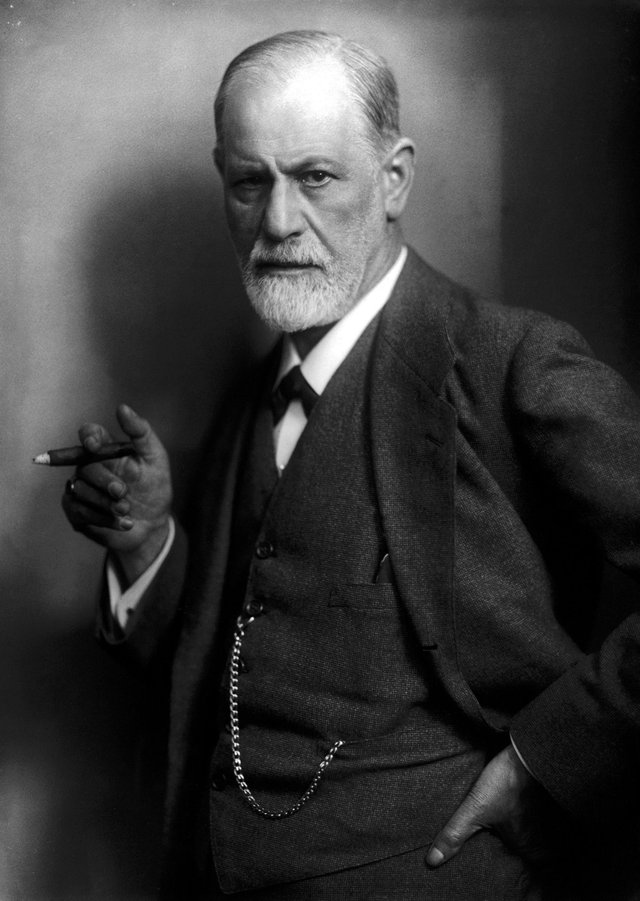
Photo of Freud taken from Wikipedia
“Words have a magical power. They can bring either the greatest happiness or deepest despair; they can transfer knowledge from teacher to student; words enable the orator to sway his audience and dictate its decisions. Words are capable of arousing the strongest emotions and prompting all men's actions.” ― Sigmund Freud
References/Links https://www.verywell.com/the-id-ego-and-superego-2795951
http://www.apsa.org/content/psychoanalytic-theory-approaches
The Interpretation of Dreams by Sigmund Freud
A Little History on Philosophy by Nigel Wharburton
Introduction to Psychoanalysis by Sigmund Freud
The Cocaine Papers by Sigmund Freud
My name is Sterlin. Follow me @ Psychologic-Anarchist. I also run the Psychologic-Anarchist Facebook page and produce many YouTube videos. My interests lie in the intersection of counseling psychology and anarchism. I write about the depredations of psychiatry, and also the new philosophy of compassionate anarchism. We have a large community devoted to discussing psychology and relational voluntaryism.
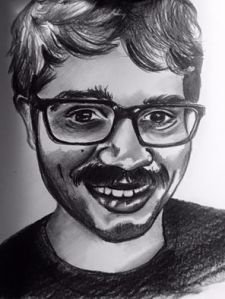
I wonder how much his reach of influence was increased by his nephew, Edward Bernays, who used his uncle's ideas to create psychologically powerful advertising campaigns. At one point, he wanted to promote one of Freud's books, but Freud thought the idea was vulgar. Bernays had relationships with psychoanalysts (a new field back then) here in the states who helped him in his advertising campaigns. Just seems that his theories were used for a lot of negative things, including consumptionist propaganda.
See my comment below. If he wasn't connected, his ideas would be nothing more than unheard words.
interesting piece . I am more of a CG Jung student. Currently reading Dreams.
Was shocked to learn that CG Jung was not even referenced in my nieces 2nd year of psychology major.
Yeah, usually if Jung is mentioned he is mentioned as a footnote, basically.
But I am with you. I think Jung is more fascinating, especially regarding his interest in alchemy and the spiritual philosophies.
Interesting article. Thank you.
Thanks, I figured I would mix it up a little bit.
His finding of Psychoanalysis gave us the couch to which we let it all out to our therapists.
I disagree that his ideas are indespensable to human kind because if not for Freud, someone else would have popped onto the scene with the same ideas. With that said, people with genuine ideas are only brought to the public eye when what they're saying is deemed beneficial to the current direction of society - that was even more true in his time.
In all reality, he was probably a genius. Unfortunately, he was working only with the tools available to him at the time. I believe he was genuinely trying to solve problems, but he used the wrong approach due to his limited area of expertise and experience.
As you said, the best we can do is learn from his mistakes and hang on to his more unique ideas. This is the beauty of being alive TODAY - everything that's ever happened historically is behind us, readily available for our analyzation, learning and growth.
awesome job about it!
what is the best Freuds theory you are keen on?
Thanks! Probably theory of the unconscious mind as he fleshed it out, which was discussed here.
#confirmationbias <3 it! TY Freud enthusiast, myself as well! :D